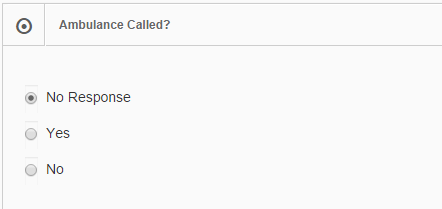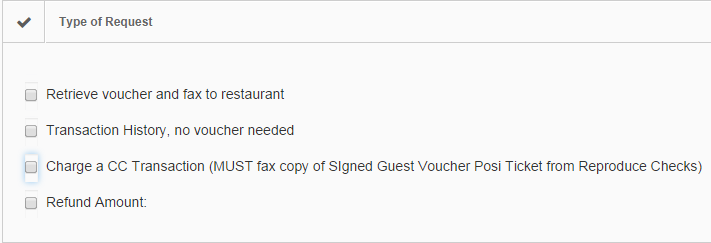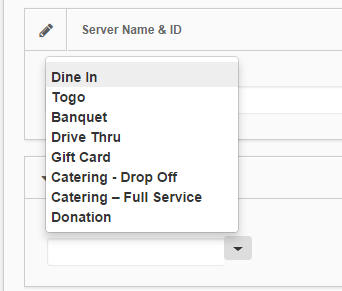The context-sensitive help for the Emplifi Agent training environment now goes to our new (Training) documentation site.
After v12.2 GA, the context-sensitive help for the Emplifi Agent production environment will go to our new (Production) documentation site.
Because of the above, this site is no longer updated and will be deprecated after the release of v12.2 GA.
Add Items: Surveys
Surveys are standardized scripts that allow you to ask a customer a series of questions and record their responses to those questions. Once the survey has been completed, it is attached to the case like any other item. The responses can be viewed or modified later, or they may be used for management reporting.
Here are some examples of common uses for surveys:
- If a person calls about a product malfunction, there may be a standard set of questions that need to be asked in order to diagnose or report the problem.
- If a person calls with an issue that may require assistance from your legal department, a survey could be used to collect information that will be needed by that department.
- Surveys could be executed randomly to gauge customer satisfaction levels, or to inquire about desired service offerings for future business planning.
Surveys provide an additional way to enter data on a case. You can control data based on what you enter on the survey. Your system administrator may use migrations, limit codes, dependencies, and mandatory rules to control how data is processed between the survey and the case. For information, refer to the Overview of Cases in Emplifi Agent topic in the Help.
Note: If you receive an error message that you do not have access to a survey, contact your system administrator so that they can provide you the proper access rights.
Surveys may be initiated either manually or automatically (suggested surveys), depending on how they are set up by your administrator. Automatic surveys are typically started as the result of entering a specific value into a field (issue code and reason code are common).
To manually initiate a new survey:
- From the Case window,
click
 , then select the
Survey option.
, then select the
Survey option. - The system displays a list of possible surveys. Click on the name of the survey that you want to run and click the Select button. The Survey window displays, allowing you to administer the survey.
When a survey is initiated either manually or automatically, the survey displays in a separate window.
Each survey is comprised of a series of questions. As the person administering the survey, your job is simply to read each question and the possible answers to the customer, and record the answers given.
Note: When a survey is opened from a case, the case allows you to continue entering case data; however, you cannot delete issues or post actions while the Survey window remains open. If you save the case, a message displays to remind you that the Survey window is still open but allows you to continue with the save.
Question and Answer Types
There are four primary types of questions that you may encounter:
-
Multiple Choice, Single Answer: These questions present a set of possible responses, from which the respondent must select one.
 Example
Example -
Multiple Choice, Multiple Answer: These questions present a set of possible responses, from which the respondent can select as many as are applicable.
 Example
Example -
Coded Response: These questions allow you to browse a set of code values for the possible answer.
 Example
Example -
Freeform Text: These questions allow you to enter text in free format. These are usually used to record a respondent's comments verbatim.
 Example
Example
Navigating a Survey
You may notice that a survey does not always seem to contain the same questions each time you give it to a customer, or that questions may sometimes be given in a different order. This is because surveys can contain special branching logic. A certain answer to one question may cause the survey to branch to a different question than normal. This branching happens automatically if you administer the questions in order.
Saving a Survey
After you have reached the end of a survey, save the
survey by clicking the Save button in the Function banner.
in the Function banner.
Note: Address data that is set up to migrate from the survey to the case does not display on the case until you save both the survey and the case.
Editing a Survey
When you open a survey that was given previously, the Survey window contains the full list of questions. This allows you to easily view a specific question or change the answer.
Surveys and Case Edit
Opening the Survey window from a case does not block you from editing the case. Therefore, if a suggested survey opens a new window while a customer is providing other information, you can still record the information before completing the survey.
While a Survey window is open for a case, the system prevents you from posting actions and from deleting issues. Also, if you try to save the case prior to closing the survey, a warning displays that a Survey window is open and should be completed before saving the case. You have the option to continue with saving the case.
Code questions on a survey that are based on Issue (C) Categories and tied to an issue migrate to the case when they are changed. If they are Dependent or Limited on other Issue Categories, the current value of those codes on the related case and issue apply. Therefore, if the driver code is changed on the case, the next time that code is entered on the survey, the new set applies. However, changing the driver does not clear any code values that have already been entered on the survey.
Getting Help on Survey Questions
Your administrator may have assigned catalog entries to give additional information about a certain question and its answers to assist you in administering the surveys. Depending on how the information is set up, the catalog may pop up automatically when you get to a specific question or choose a specific answer. At other times the information only comes up when requested. To see if there is any information available regarding the current question you are looking at, click Display Catalog Entries in the Application menu.
Working with Surveys
The following video will guide you through working with surveys.
Accelerate your Agent knowledge by visiting Emplifi Learning, our online learning platform, for on-demand courses, certifications, how-to videos and even more guides!
Copyright © 2023 Emplifi Inc. All rights reserved.



